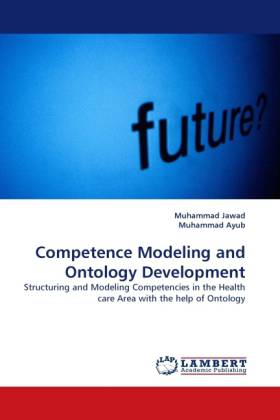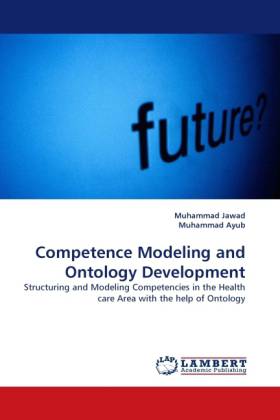
- Afhalen na 1 uur in een winkel met voorraad
- Gratis thuislevering in België vanaf € 30
- Ruim aanbod met 7 miljoen producten
- Afhalen na 1 uur in een winkel met voorraad
- Gratis thuislevering in België vanaf € 30
- Ruim aanbod met 7 miljoen producten
Zoeken
Competence Modeling and Ontology Development
Structuring and Modeling Competencies in the Health care Area with the help of Ontology
Muhammad Jawad, Muhammad Ayub
Paperback | Engels
€ 48,45
+ 96 punten
Omschrijving
Ontology development is a systematic technique to represent the existing and new knowledge about a specific domain by using some models to present the system in which conceptualization is involved. This book presents the use of ontology to formally represent ontology-based competence model for potential users of quality registry report in a health care organization. The model describes the professional and occupational interests and needs of the users through structuring and describing their skills and qualifications. There are two main parts of our competence model: general competence and occupational competence. The model is implemented in protegee 4.0. Although our competence model gives the general view about all medical areas in a hospital, from implementation point of view, we have considered only Cardiology area in detail. A user can get information about the patient and specific disease with treatment tips by using various organizational resources: i.e. quality registries, medical reports and online journals. Our model also provides a support of information filtering which filters the information according to the need and the competencies of the users.
Specificaties
Betrokkenen
- Auteur(s):
- Uitgeverij:
Inhoud
- Aantal bladzijden:
- 96
- Taal:
- Engels
Eigenschappen
- Productcode (EAN):
- 9783838393803
- Verschijningsdatum:
- 22/09/2010
- Uitvoering:
- Paperback
- Formaat:
- Trade paperback (VS)
- Afmetingen:
- 152 mm x 229 mm
- Gewicht:
- 149 g

Alleen bij Standaard Boekhandel
+ 96 punten op je klantenkaart van Standaard Boekhandel
Beoordelingen
We publiceren alleen reviews die voldoen aan de voorwaarden voor reviews. Bekijk onze voorwaarden voor reviews.











